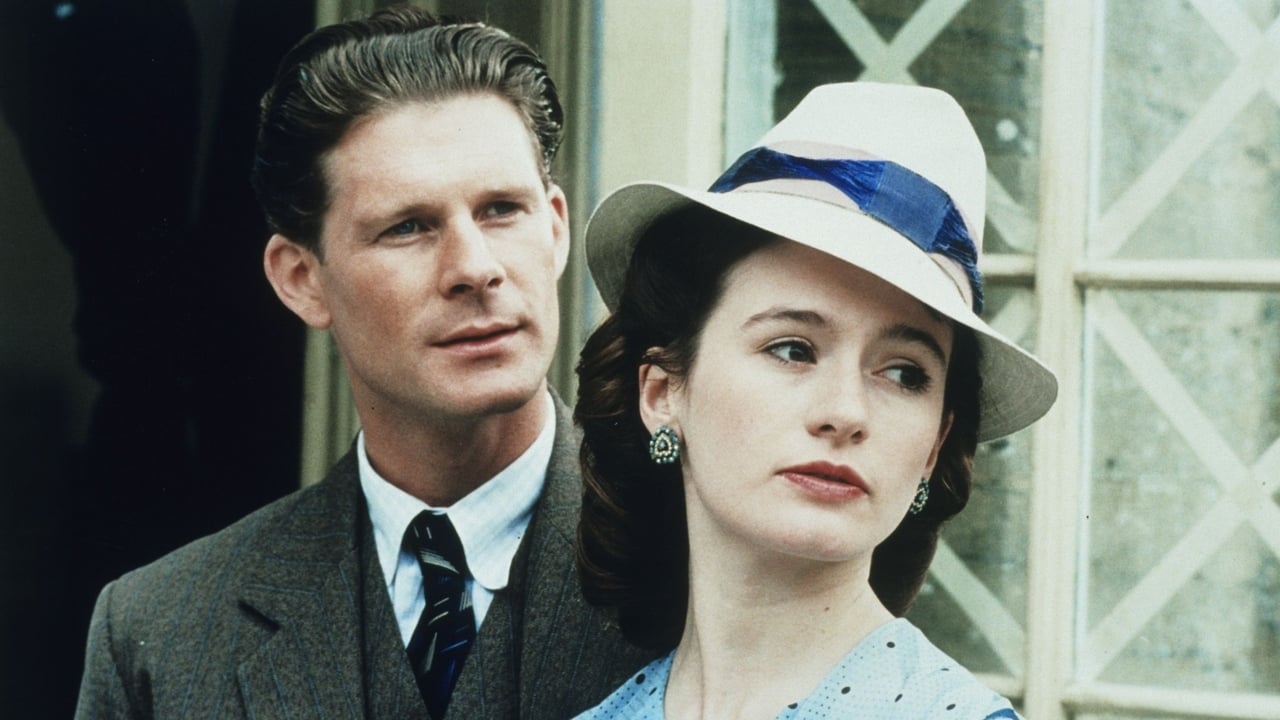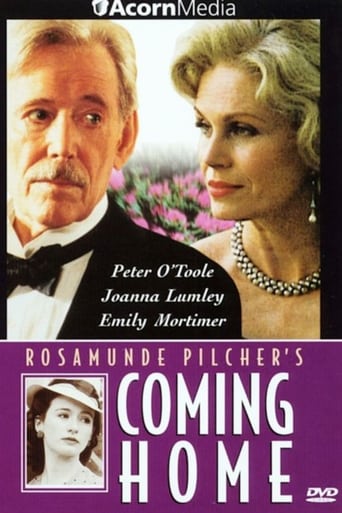ada
the leading man is my tpye
Softwing
Most undeservingly overhyped movie of all time??
Dorathen
Better Late Then Never
filippaberry84
I think this is a new genre that they're all sort of working their way through it and haven't got all the kinks worked out yet but it's a genre that works for me.
jjparish
I only watched this for Keira and boy she didn't disappoint. She looks incredible in this and you knew right from the first minute what a star she would become. Beauty like Keira's is so rare, you just have to acknowledge and enjoy it while it lasts. However, i had to laugh when Keiras time was up and they replaced her with someone as ugly as Emily Mortimer! Were they drunk when they came up with that bit of casting? What a joke. I actually stopped watching 2 minutes into Mortimers stint i was that appalled.
johnbridger
Quite what the producers of this appalling adaptation were trying to do is impossible to fathom.A group of top quality actors, in the main well cast (with a couple of notable exceptions), who give pretty good performances. Penelope Keith is perfect as Aunt Louise and equally good is Joanna Lumley as Diana. All do well with the scripts they were given.So much for the good. The average would include the sets. Nancherrow is nothing like the house described in the book, although bizarrely the house they use for the Dower House looks remarkably like it. It is clear then that the Dower House is far too big. In the later parts, the writers decided to bring the entire story back to the UK, presumably to save money, although with a little imagination I have no doubt they could have recreated Ceylon.Now to the bad. The screenplay. This is such an appallingly bad adaptation is hard to find words to condemn it. Edward does not die in the battle of Britain but survives, blinded. He makes a brief appearance then commits suicide - why?? Loveday has changed from the young woman totally in love with Gus to a sensible farmer's wife who can give up the love her life with barely a tear (less emotional than Brief Encounter). Gus, a man besotted and passionately in love, is prepared to give up his love without complaint. Walter (Mudge in the book) turns from a shallow unfaithful husband to a devoted family man. Jess is made into a psychologically disturbed young woman who won't speak. Aunt Biddy still has a drink problem but now without any justification. The Dower House is occupied by the army for no obvious reason other than a very short scene with Jess who has a fear of armed soldiers. Whilst Miss Mortimer's breasts are utterly delightful, I could not see how their display on several occasions moved the plot forward. The delightfully named Nettlebed becomes the mundane Dobson. The word limit prevents me from continuing the list.There is a sequel (which I lost all interest in watching after this nonsense) and I wonder if the changes were made to create the follow on story. It is difficult to image that Rosamunde Pilcher would have approved this grotesque perversion of her book; presumably she lost her control when the rights were purchased.
unlt
Despite her small role Penelope Keith steals the show in this adaptation of a period drama that tells the story of the upheavals of war on the home front. She is the ultimate educated and feminist aunt whose character is only spoilt by an idiotic ignorance of David McCallum's advances on Keira Knightly.Unfortunately, Keith's character dies early on in this 199 minute drama and the key concept of the changes of war barely touch the social realities of this story's very privileged characters.Emily Mortimer is an excellent actor but is badly miscast as an elder version of Knightly whose talents could easily have allowed her to continue in the role to at least the age of 18. Lumley's heartache is barely given a glance in the story and there is virtually no opportunity for O'Toole to demonstrate his acting talents. The adult Loveday Carey-Lewis, played by Katie Ryder Richardson changes little from her childhood counterpart with the result that her character has mo more maturity than that of a ten year old! Moreover, the aftermath of the sex scene between Paul Bettany and Mortimer does not create the desired effect of rendering Bettany's character as an uncaring rogue. Instead Mortimer's inflated romantic notions only fuel a dislike for a character that is utterly inept and badly in need of a lesson on life!Bettany, while brilliant, commits an unconvincing suicide but at the very least we catch a glimpse of the brutality of war on a generation of young men.I found myself wishing that the story had been told from the point of view of Mortimer's sister and the young artist, Gus, played by Heikko Deutschmann, but this is on account of my personal preference for a dark story lines.Overall the drama is entertaining but if you are looking for a more profound experience, look elsewhere.
trpdean
I quite disliked this for some time - it struck me as a soap opera not meant for the likes of this 50 year old male lawyer -- but it grew on me as the series went on.Are there stereotyped characters? You bet. Is there as great a reverence for a grand home as you'll ever see outside Scarlett O'Hara's Tara? Yup.But the acting nevertheless raises the level of this - and because of them, the characters' tragedies and their loves -- the sort of thing that many grand families did indeed go through in the Second World War -- do move us.The story is of two girls who become friends at boarding school in 1937 and their lives from that time to 1947. One of the two is a sweet rather naive middle to upper middle class girl, the older of two sisters, whose family lives in Singapore (father's an executive with a shipping company). The other friend is a deliberately anti-conventional youngest of three children of a grand family from Cornwall.With only two aunts and an uncle still in England (one of whom dies her first year at school and the other pair posted to Gibraltar within six months of her beginning school) the sweet girl (played by now superstar Keira Knightley and as an older girl played by the fine actress Emily Mortimer) is more or less made part of the grand family by her friend.From that point and throughout the War, this romantic tale is of separations, mistaken loves, deaths, love affairs. The end of the War brings both mystery and sadness about the sweet girl's family in Singapore.As head of that grand family, Peter O'Toole is (characteristically) mysterious -- and Joanna Lumley playing his much younger wife, does a very nice job of making us care. All concerned - particularly including Peter Batty as the only son of the grand family - are quite effective.The acting, as well as the fine costumes, sets, props, lift this above the category of mere soap opera that I originally thought it to be.Incidentally, ignore eye's comments below -- he wrongly describes much of the plot!

